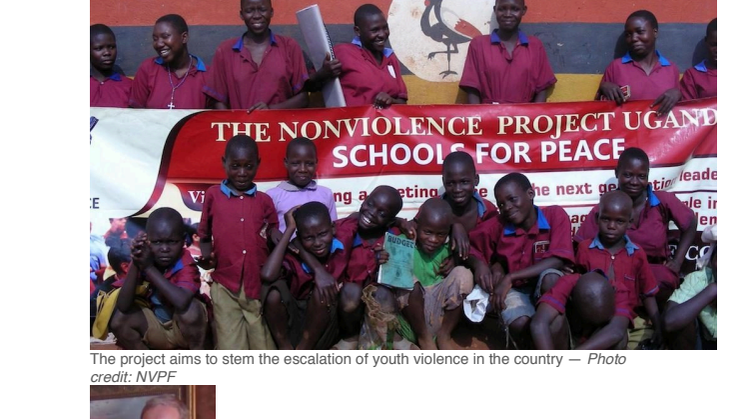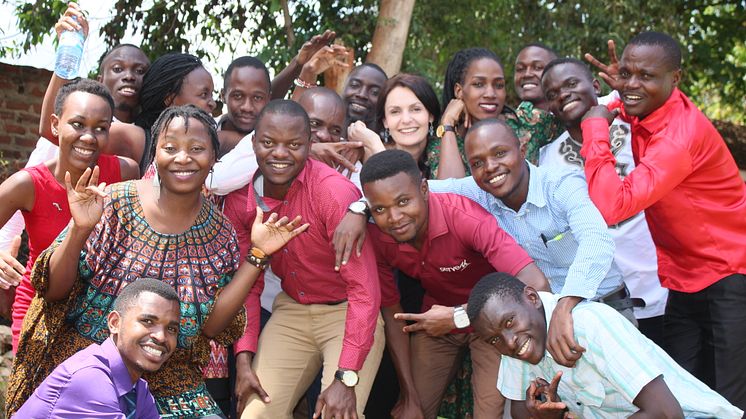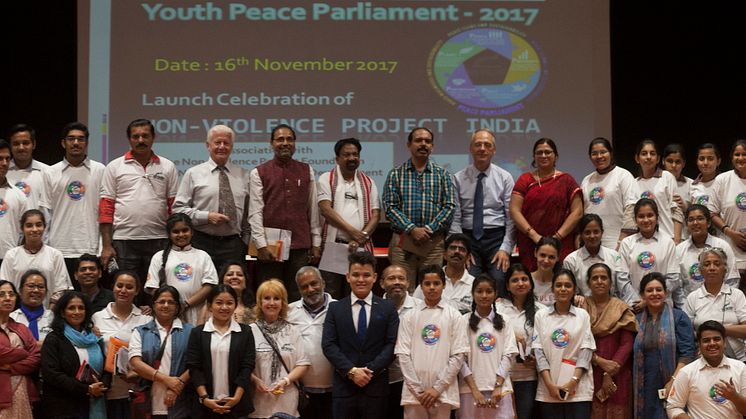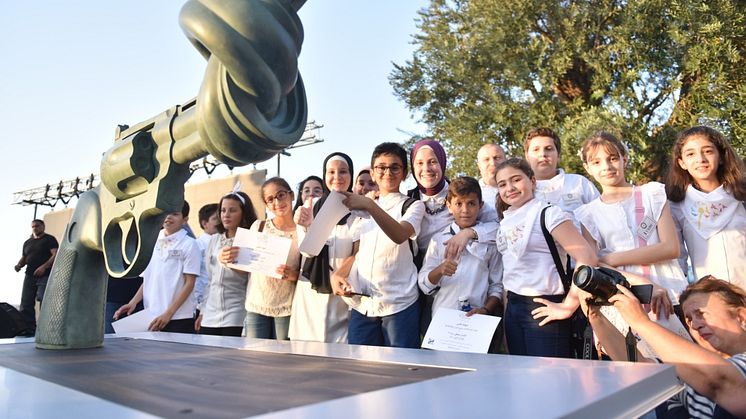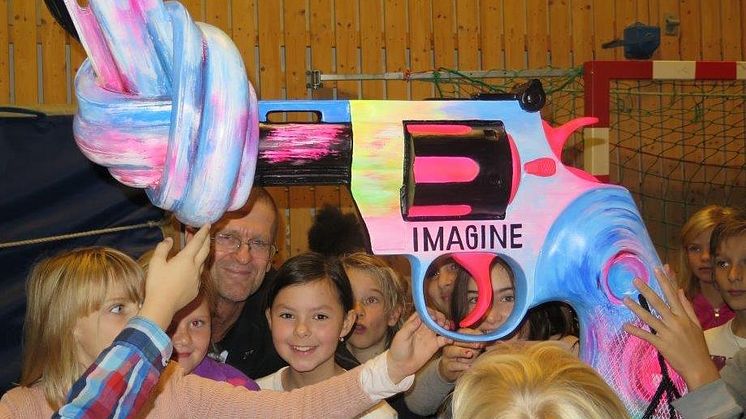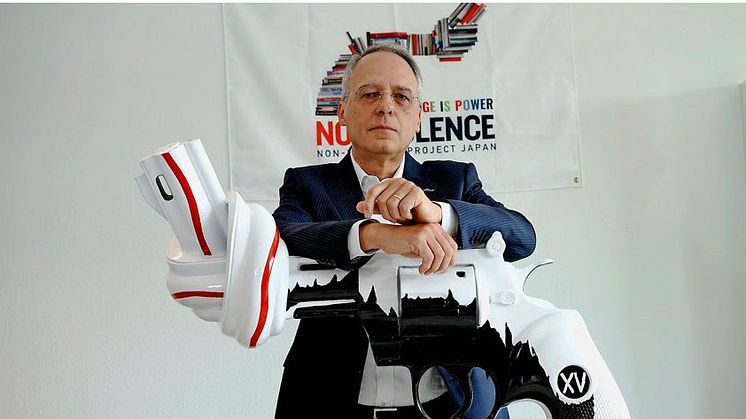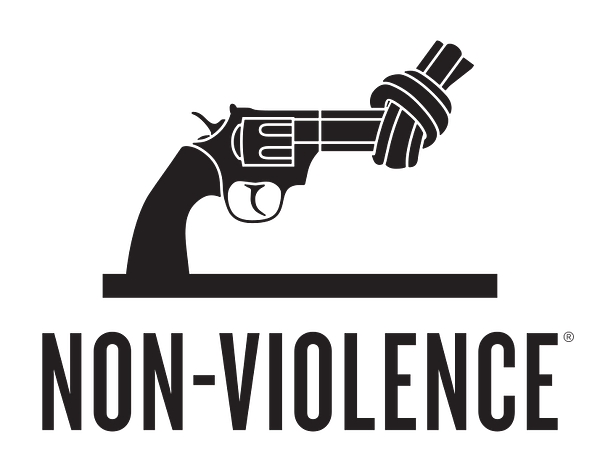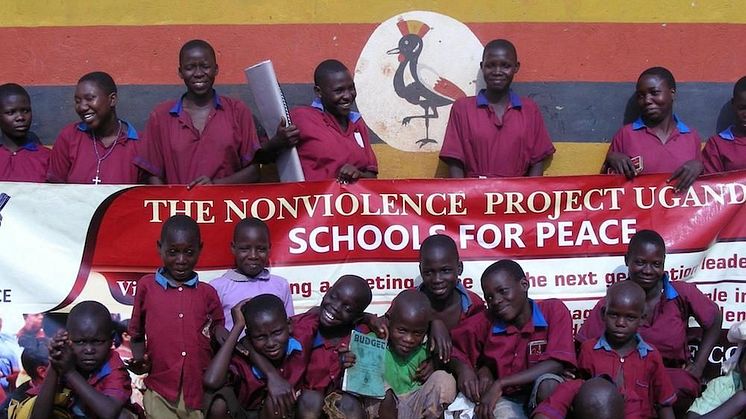
News -
Non-violence project to help thousands of school students in Uganda
The programme will involve teachers, administrators and students being educated in how to resolve conflict without resorting to violence.
More than 25,000 pupils are to benefit from a new project to combat violence in schools in eastern Uganda
The Non-Violence Project Foundation’s (NVPF) education project was launched this month with the aim of stopping youth violence in the country and more students being murdered in schools.
NVPF is a Swiss non-profit organisation founded in 1993 and based in Geneva. Its Ugandan project will involve 50 schools, 2500 teachers, 25,000 students and a total of 250,000 people overall.
NVPF’s mission is to “build a better world by delivering education to young people across the world”. It wants children to “learn how to act and take responsibility in all situations of conflicts and violence”.
The three-year Ugandan project will involve teachers, administrators and students being educated in how to resolve conflict without resorting to violence.
The escalation of youth violence in the East African country is partly due to a lack of knowledge on how to solve issues peacefully coupled with a high rate of youth unemployment, NVPF said.
The project's first phase is to train 20 “Master Trainers” who will train teachers in rural and urban schools in the Busoga sub-region of eastern Uganda.
Teachers and students will be trained in the three levels of NVPF's Schools for Peace programme over three years, to ensure a continuous decrease of violence.
The approach has already been successful in eight nations, including Brazil - where five million children have benefitted - and the United States.
In an interview with Their News, Eddy Balina, Country Director of NVP Uganda, said the NGO wanted to “inspire our young people to become peace-builders rather than engaging in violence and risky behaviours".
He added: “Violence is a very serious issue in Uganda, in all aspects of society, but we’ve been very specific and want to work around school violence. Violence is widespread in eastern Uganda where we are working.
"We want to reduce school violence. This has become a trend in Uganda and in Africa and so we wanted to start working with children."
NVPF will work in secondary schools, where over 80% of young people have experienced some form violence. More than 67% of students have experienced sexual violence.
Balina said violence is a widespread problem in the school environment and at home.
"We have an educational programme in schools to give people the tools to tackle violence. We educate teachers, administrators and students on how to tackle violence."
He continued: “Most of the time it is violence in the home that spills over into school. In this project we are specifically looking at school violence. There are a number of reasons for the violence.
"One of those is the economic situation. In the home, a mother and father often struggle for economic control and the finances that come from a harvest.
“There is also gender-based violence which later becomes a trend - to violate people because of their gender.”
Balina explained that many young people in school lack alternatives to resolve conflicts. He said many children also lack communication skills.
He added: “They lack options from fighting and breaking glasses. These are the core issues, a lack of knowledge about alternatives to violence.
“Guns are not a problem but knives are. Guns are not available. Young people use knives and sticks, this is very widespread.
“So, we have an educational programme in schools to give people the tools to tackle violence. We educate teachers, administrators and students on how to tackle violence.”
Schools for Peace is a three-level programme with 10 topics at each level.
NVPF show teachers how to manage conflicts and inspire young people to become peace builders.
Balina said it starts with building people’s self-esteem, building communication skills and social skills, while actively listening. It is a knowledge-based programme.
He added: “We also train teachers in how to handle violence. We train teachers because they can be role models for students in conflict resolution.
"We have a Non-Violence School Manual which has not been implemented anywhere else. This looks at the setting up of non-violence action groups composed of teachers, principals and students - there is a mission for a violence-free school and there are policies and guidelines to help them achieve this.
“The last component is a tool that allows people to report cases of violence, called Peace Boxes. People can use these to report violence anonymously, and the school can track case of violence to see if they’re making progress. It is purely education and increasing knowledge.”
The project has been tried in eight nations. The biggest impact has been in Brazil where it has proved to be very effective, especially for younger people, Balina said.
He added: “It’s been designed in a way to be engaging and inspiring, and it is very precise and simple to understand. And it is very practical.
“I started the project eight years ago in Uganda because I went to a school which had one of the highest rates of violence including people losing their lives. So, I started leading a team to implement a schools for peace programme in that school.
"So for eight years we have been working with a few schools but are now scaling up due to our success. This has pushed us to start working with 250 schools over the next three years.
“The need is there but what was limiting us was the support to expand."
The Uganda Project was launched on March 8 in NVP Uganda's Head office in the district of Jinja.
Interview and article by Billy Briggs, for Their World, April 05 2018
